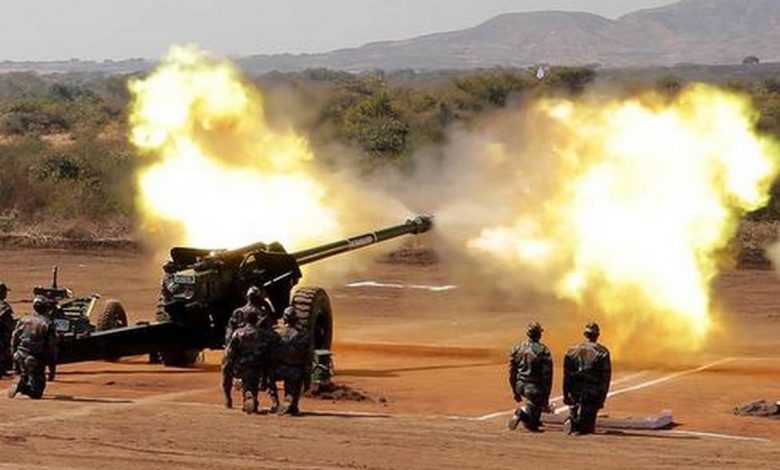Increasing FDI cap in Defence from 49% to 74%, Is it Atmanirbhar Bharat?The talk of reforms is in the air. The Atmanirbhar Bharat. The Strong Bharat, The Aspiring Bharat, with its own place in the new global order. Will it be achieved by increasing the FDI through automatic route to 74% in Defence production. As per draft Defence Production and Export Promotion Policy (DPEPP) 2020 India wants to achieve a turn over of Rs.1,75,000 Crores including export of rs.35,000 Crores in Aero Space and Defence Goods and Services by 2020. While the contribution of Public Sector and Ordnance Factories are estimated to be Rs.63,000 Crore, the share of Private sector has steadily grown to Rs.17,000 Crore over the years. The question before the Nation is who will take it to that dream target of Rs.1,75,000 Crores. Keeping this in mind, the Government has increased the FDI cap to 74%. On the one side the Government is advocating to stop Defence Import and on the other side is encouraging foreign Arms manufacturers to invest 74% in Indian Companies and to produce their products through screw driver technology, which means complete knockdown (CKD) and Semi knockdown(SKD) will be imported from foreign countries and the same will be assembled in Indian companies, where the FDI is invested. During Kargil Conflict, Army had ordered for a purchase of two Regiments of 155 mm Denel Guns from South Africa, but when the Weapons were to be delivered, they said they don’t have them. On the context of conflict at Border with China, Army is importing Arms and Ammunitions under emergency power, even though these products can be easily produced by OFB and DPSUs. There is net loss to the country as there is net outgo of cash in the form of precious foreign exchange. There is a talk of Atmanirbhar Bharat, but where is it. Services are importing Arms & Ammunitions to become Atmanirbhar on import. As a country we should be saving our precious foreign exchange and instead of depending upon FDI and foreign technology we should develop our own indigenous technology and start producing the products required for the Armed Forces in our domestic industries. This will give sufficient work to Ordnance Factories, DPSUs, and MSMEs. There will be more churning of rupees which will help in improving GDP as well as the conditions of Ordnance Factories and DPSUs. The Defence market is different from the conventional market. The Defence Equipment Industry, thus represents a genuine domain of the state, a domain based on Govt. orders as to what to produce, what resources to use, what prices to charge and even to whom to sell and to whom not to sell. Thus in the Defence Market principles such as FDI can be applied in totality is a big question. According to a report of the FICCI in 2017 India spends less than 1% of its GDP towards R&D. Israel and Korea are the biggest spenders on R&D at 4.21% and 4.15% of GDP respectively. Even in those countries a large chunk of total R&D spent is done by Govt. Thus the message is very clear. The self reliance can be driven through R&D. As Private Sector share on R&D is very negligible it cannot lead quest for self reliance. Therefore the Government instead of depending on an unreliable FDI should strengthen the DRDO, Ordnance Factories and DPSUs. In this regard the Parliamentary Standing Committee in its report 2012-2013 on self reliance on Defence production has categorically recommends that the Ministry of Defence should encourage better coordination among users, i.e. Defence forces, Production Units i.e. Ordnance Factories, DPSUs and DRDO to enhance self reliance in the country. Unfortunately the Government, instead of adopting and implementing the above strategies are going ahead with enhanced FDI in Defence, Privatisation of DPSUs, Corporatisation of OFB, forcing technology developed by using Tax Payers money by the DRDO to be handed over to Private Sector instead of Ordnance Factories and DPSUs. As all of us know that there are many disadvantages of allowing FDI. The first casualty will be the Domestic Industries, especially MSMEs. The FDI always benefits the country or the company which invest money. The recipient economy is not benefitted much. There may be arguments in favour of FDI. However allowing FDI in strategic sectors like Defence, is not in the interest of the Security and Sovereignty of our country. More over in order to induce the foreign companies to invest money, the host country has to bear quiet heavy cost in the form of providing land, water, power, transport, tax relief and other facilities. India being a peace loving country should not allow the foreign Arms manufacturers to land in India and establish their Military manufacturing Units through Indian Private Corporates, rather for achieving indigenization in Defence production, the country should strengthen its own DRDO, Ordnance Factories, DPSUs and the supporting Industries like MSMEs. FDI cannot achieve the goal of Atmanirbhar Bharat. Author of this Article is C.Srikumar, General Secretary All India Defence Employees Federation and National Executive Committee Members of AITUC

The talk of reforms is in the air. The Atmanirbhar Bharat. The Strong Bharat, The Aspiring Bharat, with its own place in the new global order. Will it be achieved by increasing the FDI through automatic route to 74% in Defence production. As per draft Defence Production and Export Promotion Policy (DPEPP) 2020 India wants to achieve a turn over of Rs.1,75,000 Crores including export of rs.35,000 Crores in Aero Space and Defence Goods and Services by 2020.
While the contribution of Public Sector and Ordnance Factories are estimated to be Rs.63,000 Crore, the share of Private sector has steadily grown to Rs.17,000 Crore over the years. The question before the Nation is who will take it to that dream target of Rs.1,75,000 Crores. Keeping this in mind, the Government has increased the FDI cap to 74%. On the one side the Government is advocating to stop Defence Import and on the other side is encouraging foreign Arms manufacturers to invest 74% in Indian Companies and to produce their products through screw driver technology, which means complete knockdown (CKD) and Semi knockdown(SKD) will be imported from foreign countries and the same will be assembled in Indian companies, where the FDI is invested.
During Kargil Conflict, Army had ordered for a purchase of two Regiments of 155 mm Denel Guns from South Africa, but when the Weapons were to be delivered, they said they don’t have them. On the context of conflict at Border with China, Army is importing Arms and Ammunitions under emergency power, even though these products can be easily produced by OFB and DPSUs. There is net loss to the country as there is net outgo of cash in the form of precious foreign exchange.
There is a talk of Atmanirbhar Bharat, but where is it. Services are importing Arms & Ammunitions to become Atmanirbhar on import. As a country we should be saving our precious foreign exchange and instead of depending upon FDI and foreign technology we should develop our own indigenous technology and start producing the products required for the Armed Forces in our domestic industries. This will give sufficient work to Ordnance Factories, DPSUs, and MSMEs. There will be more churning of rupees which will help in improving GDP as well as the conditions of Ordnance Factories and DPSUs.
The Defence market is different from the conventional market. The Defence Equipment Industry, thus represents a genuine domain of the state, a domain based on Govt. orders as to what to produce, what resources to use, what prices to charge and even to whom to sell and to whom not to sell. Thus in the Defence Market principles such as FDI can be applied in totality is a big question. According to a report of the FICCI in 2017 India spends less than 1% of its GDP towards R&D. Israel and Korea are the biggest spenders on R&D at 4.21% and 4.15% of GDP respectively. Even in those countries a large chunk of total R&D spent is done by Govt. Thus the message is very clear. The self reliance can be driven through R&D.
As Private Sector share on R&D is very negligible it cannot lead quest for self reliance. Therefore the Government instead of depending on an unreliable FDI should strengthen the DRDO, Ordnance Factories and DPSUs. In this regard the Parliamentary Standing Committee in its report 2012-2013 on self reliance on Defence production has categorically recommends that the Ministry of Defence should encourage better coordination among users, i.e. Defence forces, Production Units i.e. Ordnance Factories, DPSUs and DRDO to enhance self reliance in the country.
Unfortunately the Government, instead of adopting and implementing the above strategies are going ahead with enhanced FDI in Defence, Privatisation of DPSUs, Corporatisation of OFB, forcing technology developed by using Tax Payers money by the DRDO to be handed over to Private Sector instead of Ordnance Factories and DPSUs. As all of us know that there are many disadvantages of allowing FDI. The first casualty will be the Domestic Industries, especially MSMEs. The FDI always benefits the country or the company which invest money. The recipient economy is not benefitted much. There may be arguments in favour of FDI. However allowing FDI in strategic sectors like Defence, is not in the interest of the Security and Sovereignty of our country. More over in order to induce the foreign companies to invest money, the host country has to bear quiet heavy cost in the form of providing land, water, power, transport, tax relief and other facilities.
India being a peace loving country should not allow the foreign Arms manufacturers to land in India and establish their Military manufacturing Units through Indian Private Corporates, rather for achieving indigenization in Defence production, the country should strengthen its own DRDO, Ordnance Factories, DPSUs and the supporting Industries like MSMEs. FDI cannot achieve the goal of Atmanirbhar Bharat.
Author of this Article is C.Srikumar, General Secretary All India Defence Employees Federation and National Executive Committee Members of AITUC




